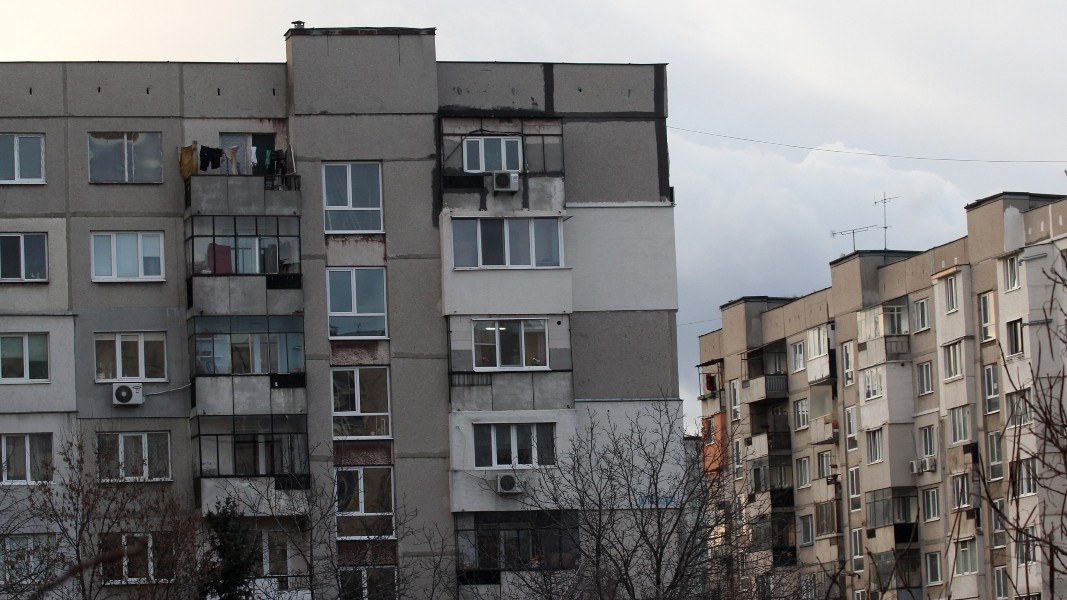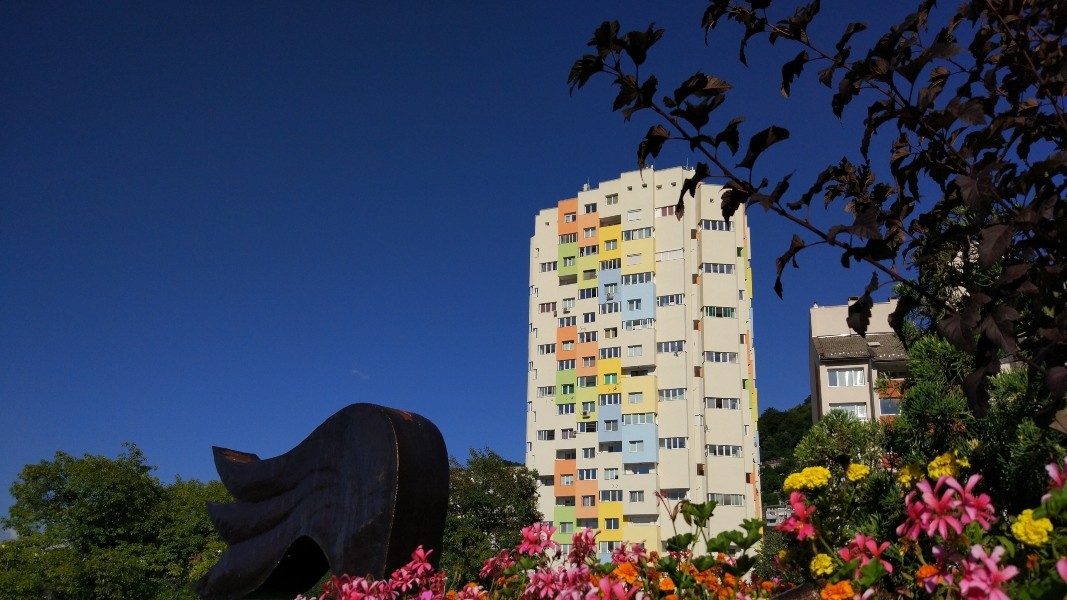The residential districts of Lyulin, Mladost, Druzhba, Tolstoy and many others in Sofia, the Trakia district in Plovdiv - what they have in common is that their inhabitants live mostly in prefabricated buildings, a symbol of urbanization in the countries of the Socialist camp in the 1960s and 1970s. Today, despite the modern possibilities for renovation and rehabilitation of buildings, most old prefabricated blocks still look the same way they did40-50 years ago.
The engineers involved in the design of panel blocks still claim that they do not have a limited lifetime. But it is obvious to everyone that there is corrosion of the materials, because most of the buildings were built quickly and with little money. Six years ago, the media in Bulgaria alerted that about 2 million of the country's population lives in old prefabricated buildings, which do not have technical passports and need renovation. The topic is becoming more and more relevant as in 2020 the deadline in which the oldest panel blocks had to be completely renovated so as not to become dangerous for their occupants expired.

This is the reason why a question painful for many people has been asked on the air of the Bulgarian National Radio - what is the expiration date of the panel blocks and what is their future?
"25 percent of the people in Bulgaria live in large-panel residential buildings, but the people in them should not worry about their operational reliability and durability. This does not mean that they should not be maintained, though”, Prof. Dr. Dimitar Nazarski, a lecturer at the University of Architecture, Civil Engineering, Geodesy in Sofia, told BNR’s Hristo Botev channel. “If there are problems, they must be repaired in a timely manner. The feeling of neglected buildings comes from the lack of maintenance of the facades and some of the stairwells. Prefabricated buildings do not have an expiration date, they are durable and the safest buildings in severe earthquakes. So far, a maximum of 8-9 percent of buildings in Bulgaria have been renovated and all buildings are supposed to have technical passports and a certificate of energy performance by 2023,” Prof. Nazarski explains.
Every inhabitant of a big city has his or her own view of the panel blocks, and it can be summarized as follows: the panel blocks of flats may have a future, but it depends more on proper maintenance and structural strengthening, rather than on the external and cosmetic renovation.

The ownership feeling of Bulgarians towards their homes as “their fortress”is evident on the facades of the panel blocks. Many of the residential cells have been renovated according to the preferences and financial limitations of their owners. That is why the facades of multi-storey blocks often look as if they are arbitrarily covered with patches that do not correspond to the overall appearance of the building.
The redevelopment process is difficult because agreement must be reached between many owners, which is almost impossible. "Bulgaria has adopted a National Strategy until 2030 with ambitious goals for increasing energy efficiency and energy renovation of buildings. We hope that next year programmes will be planned to finance measures to improve the energy efficiency of buildings,"said Ina Boyadzhieva, head of the Energy Efficiency Control Department at the Agency for Sustainable Energy Development.

Compiled by Gergana Mancheva (based on interviews of Milena Vodenicharova from BNR’s Hristo Botev national channel)
Photos: BGNESOn November 8 in Hall 11 of the National Palace of Culture, Bulgaria’s best masters and artisans will be awarded for the third time. The founder and driving force behind the “Creator of the Year” initiative is Nikolay Traykov, who visited “Radio..
Sofia has a new spot for curious minds. Phenomena is a museum where science and art come together — a place to experiment, discover, and get hands-on with the wonders of how the world works. Rooted in the spirit of STEAM education — that’s Science,..
‘In my view, the period between Bulgaria’s liberation and 1944 was especially significant because I believe that the country was then on the right developmental path,’ says collector Filip Milanov. ‘That era produced many people of exceptional integrity..
Fertility Europe , the pan-European organization that represents patient associations focused on infertility issues, has announced the start of the 9..
On November 8 in Hall 11 of the National Palace of Culture, Bulgaria’s best masters and artisans will be awarded for the third time. The founder and..
The so-called Seal of Biliteracy was created in 2011 in the US state of California with the idea that in the conditions of a globalized..

+359 2 9336 661
